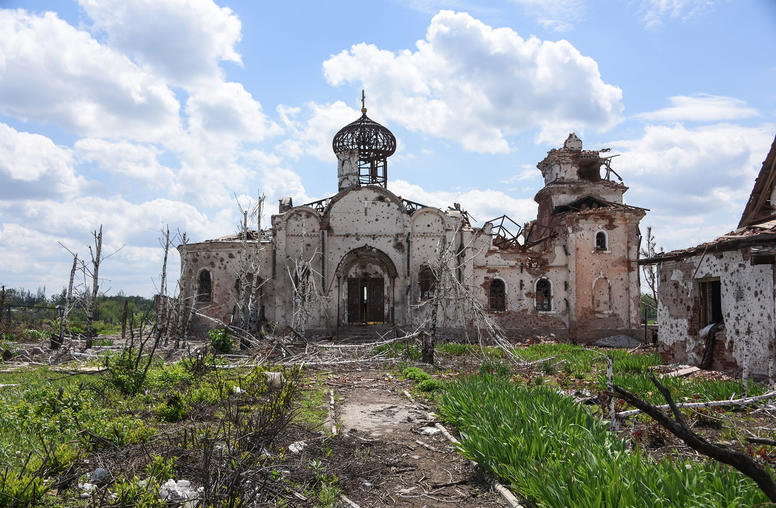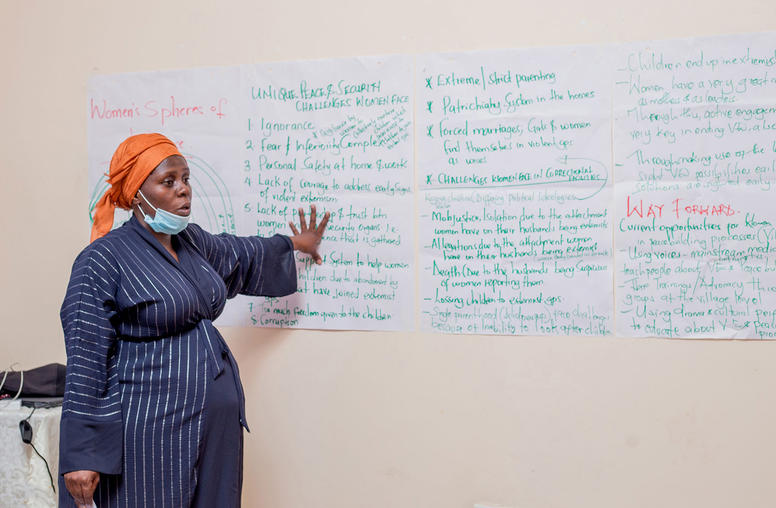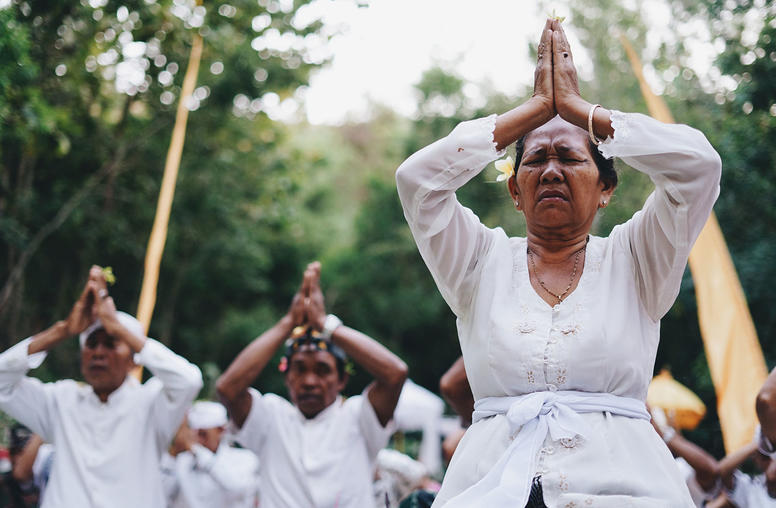 Religion
Religion
Given religion’s influence on conflict dynamics around the world, it is critical that practitioners and policymakers understand and partner with religious leaders and people of faith to build peace. For more than 35 years, the U.S. Institute of Peace has worked on the role of religion in violence and peace — advancing cutting-edge research and policy and developing effective strategies to engage religious actors, institutions and ideas across traditions in support of peace. From enhancing the peacemaking capacities of individuals and faith-based organizations to fostering meaningful dialogue within and across faiths, USIP works with local partners to promote inclusive religious peacebuilding.
Learn more in USIP’s fact sheet on Religious Engagement in Peacebuilding.
Religion and Peacebuilding: Key Dimensions
As USIP’s longest-running thematic program, the mission of the religion and inclusive societies team is to serve as the peacebuilding field’s preeminent hub of expertise and experience on understanding and working with religion and religious actors. Our distinctive strategic religious engagement tools and capabilities allow us to confront and address emerging challenges to peace and stability around the world:
Religious Literacy
We build religious literacy to help policymakers and peacebuilding practitioners understand how religious actors and institutions contribute to the mitigation, prevention and resolution of violent conflict.
Strategic Religious Engagement
We lead and support strategic religious engagement activities with religious communities and faith-based organizations who make vital contributions to the advancement of peace and stability in diverse global settings.
Innovative Policy and Assessment Frameworks
Our innovative policy and assessment frameworks provide government and civil society partners with new ways of thinking about and integrating religion in their work as well as systems for assessing and measuring the impact of religious engagement efforts.
How and Where We Work
On-the-Ground Efforts
In Colombia, we pioneered training on religion, mental health and psychosocial support for refugees displaced by violent conflict. In Ukraine, our dialogues work across religious divisions to enhance social cohesion. In over a dozen countries across Africa, the Middle East and Asia, we work with religious women to advance their inclusion in peace work.
Working with USIP’s Country Programs
Our unique religious engagement capabilities support USIP’s Afghanistan team by bringing together civil society activists and religious leaders. We also partner with the Institute’s Africa Center to engage religious leaders in Sudan on strategies for peace.
Tools and Resources for the Peacebuilding Field
We provide action guides to build the capabilities of everyone from grassroots peacebuilders to military chaplains. We produce analytic profiles of religion and conflict in countries around the world to inform policymakers and practitioners.
Featured Publications

How to Advance the Evidence-base for Strategic Religious Engagement
Last September, the U.S. Agency for International Development (USAID) released its first-ever strategic religious engagement (SRE) policy. During its first year, the framework has won praise from a wide range of policymakers and diplomats. Not only does the policy affirm the critical role of religious actors as partners in advancing shared development and peacebuilding goals, but it also provides guidance for collaboration with these religious communities and faith-based organizations (FBOs).

On Asia Trip, Pope Francis Uses his Bully Pulpit
Pope Francis wrapped up the largest, farthest trip of his pontificate last week, which encapsulated his position as a simultaneous spiritual and political figure.

Six Lessons for Addressing Myanmar’s Mental Health Crisis
There is a growing mental health crisis in Myanmar — one fueled by the junta’s violent atrocities against the population and a humanitarian crisis that has displaced an estimated 3.1 million people.
Current Projects

Religion and Conflict Country Profiles
USIP’s Religion, Peace and Conflict Country Profiles (RPACCs) are concise analytic overviews of the religious landscape in countries at risk of, currently experiencing or recovering from violent conflict. RPACCs are intended to be used primarily by policymakers and practitioners looking to develop rapid familiarity with the nature and status of religion in a given country of interest as well as to understand how religion intersects with conflict and peace dynamics. The RPACC series is an outgrowth of USIP’s previous work on Religious Landscape Mapping in Conflict-Affected States.

The USIP Learning Agenda
In support of the Evidence Act and as part of the U.S. national security architecture, USIP is carrying out its own learning agenda. Peacebuilding has long been viewed as too messy and complex for evidence-based approaches — but USIP’s mix of research and practice belies that assumption.

Religious Literacy and Peacebuilding
Peacebuilders and policymakers are engaged and involved with religious actors in almost every aspect of their work. Even where religion is not an explicit presence, it is a cultural undercurrent that is immutably present — and one that is often vastly underestimated by policymakers. As USIP’s three decades of experience working at the intersection of religion, peace and conflict has shown, the teachings of various religious traditions, the lived experience of those who practice them and the knowledge of how to engage with people of faith are all essential elements of effective peacebuilding.